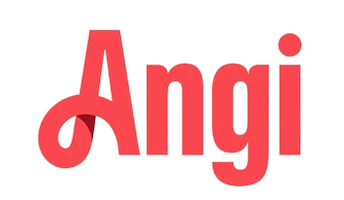
To combat increasing energy expenses and embrace sustainability, many homeowners are trying new methods to maintain comfort levels while using less energy. With help from the Inflation Reduction Act, federal tax credits are available for upgrading to more efficient HVAC systems, such as air conditioners. These credits offer big savings, provided that homeowners work with eligible equipment and submit the appropriate form.
If you’re concerned the application process might be tedious, we’re offering to help! Superior Comfort Systems hopes this guide will give you everything you need to earn these HVAC tax credits in 2024. Here’s what you’ll need to do.
Understanding the HVAC Tax Credits
These valuable tax credits for energy-efficient home improvements are just one intended use of the recent Inflation Reduction Act. With the higher cost of energy making an impact, helping more homeowners upgrade their equipment is always beneficial. The primary goal of these credits is to mitigate costs associated with installation and renovation projects. The two we’ll cover are the Residential Clean Energy Credit and the Energy Efficiency Home Improvement Credit.
But remember, in order to be eligible for tax credits, you’ll have to complete IRS Form 5695. Additionally, this form has to be submitted during the same tax year your upgrades were installed, not purchased.
Maximizing Savings with the Energy Efficiency Home Improvement Credit
Through 2032, the Energy Efficiency Home Improvement credit empowers homeowners by offsetting up to $3,200 every year for making your home more energy-efficient. This equals 30% of the total project’s cost. It's important to note in order to receive the maximum amount, it means making severel investments. For example, you’ll get up to $2,000 for installing a higher efficiency heat pump. This can be paired with an additional $1,200 in credits for more projects in the tax year.
While heat pumps are a popular option for the tax credit, high-efficiency furnaces, air conditioners, boilers, and other HVAC systems are still eligible for this tax credit. It will help to confirm that your choice’s energy efficiency rating is sufficient to qualify.
Residential Clean Energy Credit
The Residential Clean Energy Credit provides 30% savings on a wide range of residential clean energy equipment upgrades. Eligibility is restricted to homeowners seeking to update existing or newly constructed homes. While the Home Improvement Credit highlights utilities and HVAC systems, this credit targets renewable energy sources like solar and wind energy.
Some specific items in this tax credit include requiring the installation project to be finished between 2022 and 2032. But at the same time, homeowners can carry forward excess credit to offset future tax obligations. This is a great way to spread out costs and keep them more manageable.
What Else Is Eligible for These Tax Credits?
Because HVAC systems are one of the biggest portions of your monthly energy costs, these tax credits offer more access to the most energy-efficient options. But home energy efficiency can be improved in many other ways. Apart from the previously listed HVAC upgrades, {you could also choose|other eligible items include|you also have access to:
- Energy-saving heat pump water heating systems
- Electrical panel upgrades
- Upgraded electrical wiring
- Insulation, air sealing and ventilation enhancements
- High-efficiency electric stoves, cooktops, ranges or ovens
- Heat pump clothes dryers
- Water boilers
Just like with installing one or more HVAC systems, you’ll need to confirm that your chosen products meet the required energy efficiency ratings.
Three Tips for Making the Most of 2024 HVAC Tax Credits
While any of these upgrades can enhance your home's energy performance, a little planning will ensure the best chance at more long-term benefits. Maximize your HVAC tax credits with these reminders:
- Perform an energy audit to pinpoint valuable enhancements. Rely on professional HVAC assessments for crucial advice.
- Enhance your home's envelope by addressing inefficient windows and doors.
- Explore potential rebates from utility companies for clean energy upgrades. Renewable sources like solar, wind, and geothermal contribute to community power grid sustainability.
- Don’t forget financing options from local service companies, which can help reduce costs even more.
Superior Comfort Systems Can Help You Secure HVAC Credits for 2024
Partner with local HVAC professionals like Superior Comfort Systems for help with home energy audits and new installation projects. Our helpful installers will deliver everything you need for a more energy-efficient home.

